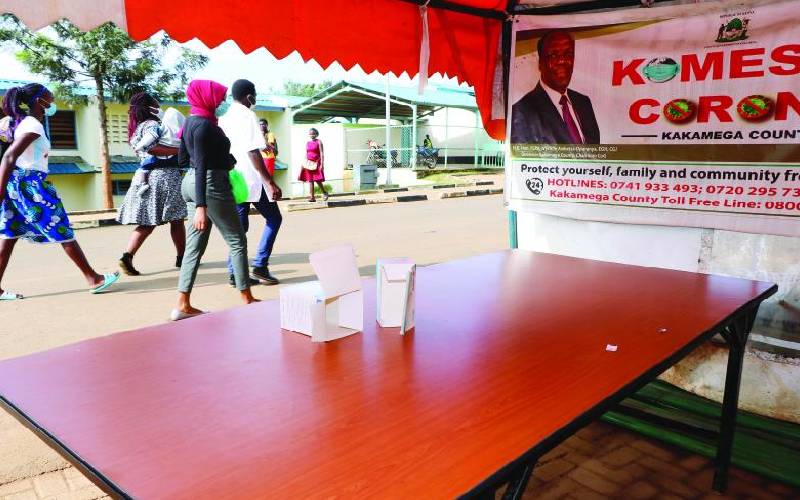×
The Standard e-Paper
Home To Bold Columnists

Patients pass by a tent at Kakamega County Referral Hospital where doctors deserted their duties due to lack of personal preventive equipment. [Benjamin Sakwa, Standard]
The Senate Standing Committee on Health has called for the establishment of a commission to address challenges bedevilling the health sector.